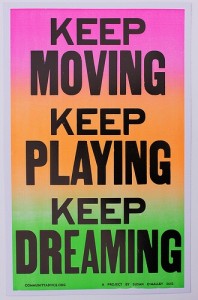After reading Zadie Smith’s “On Beauty” for book club, I found this article from the American Scholar on the college professor as portrayed in modern literature and film interesting:
The absentminded professor, that kindly old figure, is long gone. A new image has taken his place, one that bespeaks not only our culture’s hostility to the mind, but also its desperate confusion about the nature of love
Look at recent movies about academics, and a remarkably consistent pattern emerges. In The Squid and the Whale (2005), Jeff Daniels plays an English professor and failed writer who sleeps with his students, neglects his wife, and bullies his children. In One True Thing (1998), William Hurt plays an English professor and failed writer who sleeps with his students, neglects his wife, and bullies his children. In Wonder Boys (2000), Michael Douglas plays an English professor and failed writer who sleeps with his students, has just been left by his third wife, and can’t commit to the child he’s conceived in an adulterous affair with his chancellor. Daniels’s character is vain, selfish, resentful, and immature. Hurt’s is vain, selfish, pompous, and self-pitying. Douglas’s is vain, selfish, resentful, and self-pitying. Hurt’s character drinks. Douglas’s drinks, smokes pot, and takes pills. All three men measure themselves against successful writers (two of them, in Douglas’s case; his own wife, in Daniels’s) whose presence diminishes them further. In We Don’t Live Here Anymore (2004), Mark Ruffalo and Peter Krause divide the central role: both are English professors, and both neglect and cheat on their wives, but Krause plays the arrogant, priapic writer who seduces his students, Ruffalo the passive, self-pitying failure. A Love Song For Bobby Long (2004) divides the stereotype a different way, with John Travolta as the washed-up, alcoholic English professor, Gabriel Macht as the blocked, alcoholic writer.
Not that these figures always teach English. Kevin Spacey plays a philosophy professor — broken, bitter, dissolute — in The Life of David Gale (2003). Steve Carell plays a self-loathing, suicidal Proust scholar in Little Miss Sunshine (2006). Both characters fall for graduate students, with disastrous results. And while the stereotype has gained a new prominence of late, its roots go back at least a few decades. Many of its elements are in place in Oleanna (1994), in Surviving Desire (1991), and, with John Mahoney’s burnt-out communications professor, in Moonstruck (1987). In fact, all of its elements are in place in Terms of Endearment (1983), where Jeff Daniels took his first turn playing a feckless, philandering English professor. And of course, almost two decades before that, there was Who’s Afraid of Virginia Woolf?
What’s going on here? If the image of the absent-minded professor stood for benevolent unworldliness, what is the meaning of the new academic stereotype? Why are so many of these failed professors also failed writers? Why is professional futility so often connected with sexual impropriety? (In both Terms of Endearment and We Don’t Live Here Anymore, “going to the library” becomes a euphemism for “going to sleep with a student.”) Why are these professors all men, and why are all the ones who are married such miserable husbands?
